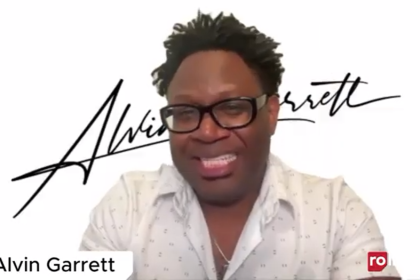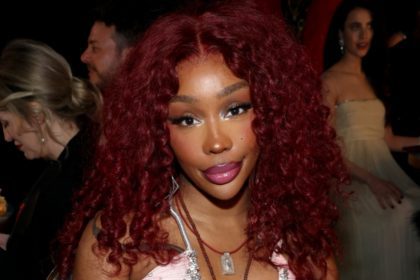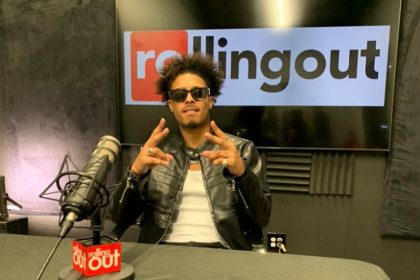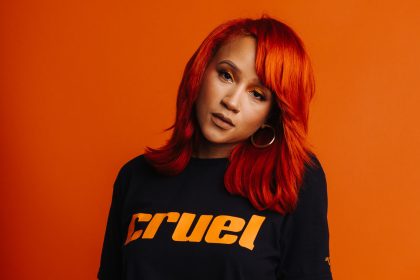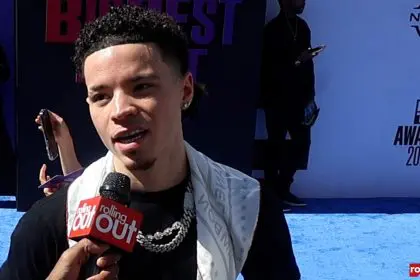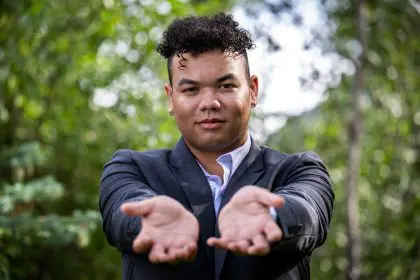
EP Entertainment/Motown recording artist Sebastian Kole is undeniably bringing back the feeling of love with his new album titled, SOUP. The 27-year-old singer-songwriter believes the music industry has become primarily entertainment-driven and is losing its valuable components.
His gift for songwriting is quite evident and others took note early on in his career. In 2012, the Alabama native packed his suitcase and headed to Hollywood with just $5,000 hoping to land a solid gig. Little did he know that after a month of living there he would snag a publishing deal for three popular tracks: “Love Doctor,” “Love’s On the Way” and lead single “Carry On.” The songs were featured on a five-track set for ABC’s “Grey’s Anatomy.”
In addition, Kole landed songwriting credits for Jennifer Lopez’s “Step Up” dance number “Goin’ In” featuring Flo Rida and Alessia Cara’s chart-topping jam “Here.”
Kole spoke with rolling out about growing up in church and branching off into secular music, his unique songwriting formula, and his new music release, SOUP.
When did you develop a passion for songwriting?
I grew up in a strict Pentecostal church. I didn’t listen to outside music for the first 12 years of my life. I only heard gospel music and I only heard music that people in my church wrote. Everyone in my church was a songwriter so I didn’t know it was a job. I didn’t know it was something you could do for a living. I wanted to add to the service so I started writing songs. Each choir sang each song I wrote. Tons of people around me wrote songs. It was just a part of my life growing up.
When was the first time you heard secular music?
My first real experience with secular music or as they call it where I’m from the “blues” was the Forest Gump soundtrack. The soundtrack completely changed my life. I heard these people singing these different melodies and they really became some of my favorite artists ever. Simon & Garfunkel, Creedence Clearwater Revival, and The Doors were all on there. This was my first introduction to music that was outside of what we had in church.
Who introduced you to the music that was outside of your norm?
A friend of mine gave the soundtrack to me for my birthday at school. I liked the movie so much so he just gave me the soundtrack. When I watched the movie I wasn’t really thinking about the soundtrack as a kid, but when they gave it to me and I got a chance to listen to it I thought it was amazing. I like the way those people were using their words to where I felt like I was in that time period. I felt like I was there. Those things were super influential on me.
Did you have to keep this a secret from your parents with them being so religious?
I had to hide it. My second secular music experience that I can remember was when Goodie Mob came out with “Cell Therapy.” I hid that tape for dear life. My dad found it one morning. I got in so much trouble about that tape. They were okay with me listening to the Forest Gump soundtrack because there were no curse words on it but this one had curse words on it.
How did you turn you passion for songwriting into a lucrative career?
By the time I got closer to college a friend of mine got signed to Atlantic Records. He ended up getting dropped from the label but he moved back home and got into songwriting himself. When he came home he was like let’s do some writing together. We were writing some hooks and then he was sending them off to some to people who wanted to manage him. One of the hooks that he sent off ended up being a song called “Goin In” for J-Lo and Flo Rida. One day I got a call from a lawyer asking me if I was Sebastian Kole. They explained that the song had been selected to be in a movie. I took that little money that I made, packed up and moved to L.A. I just kind of bounced around from session to session for about three weeks. I ended up getting a record deal on Halloween after a few weeks.
You are noted as a producer, singer, and songwriter. Which of the three do you enjoy doing the most?
If I could only do one it would probably be writing. When you grow up in a very strict home there are a lot of things you can’t say. There’s a lot of ways you can’t express yourself. Writing was my sort of my science and even if no one heard it I was able to say it.
Do you have a specific process for songwriting? If so, can you walk us through it?
I do. My formula for songwriting is kind of like running away from home. There [are] two pieces to it. One of them is where I am and the other is how I think. With where I am I can’t write a song in a room. A lot of people like to listen to music over and over again and come up with these melodies. If it’s something that I am writing once I get the ideas in my head I walk away. I basically go outside and probably look homeless to people because I would just be twiddling my thumbs and humming things while looking up at the sky. As far as lyrically and melodically, my goal is to let the song write itself. I try not to overthink a song. I try to naturally talk through that feeling and express it in the song.
What is the story behind your new album, SOUP?
The concept behind SOUP is multi-layered in itself. I was going to call it “Will Sing for Food” because there was a time when I was singing for food. I was in New York working with a producer on the album and he said it had Southern and urban-pop vibes. That kind of became the working title for the album. It’s an acronym. We just left it that way because that was the only way to describe it. Musically if the concept of love had a yearbook this is what the album is. It’s little snapshots of love for mankind, family, life and just the different stages I feel love has gone through in my mind.
What sort of person is going to enjoy SOUP?
I feel like anybody who wants to “feel.” A lot of times in music it becomes so much about entertaining that there is no thinking or feeling. I think this album is a little different because it’s a thinking and feeling album. I want people to pay attention to the mood. If you want to “feel,” then SOUP is the album for you.

